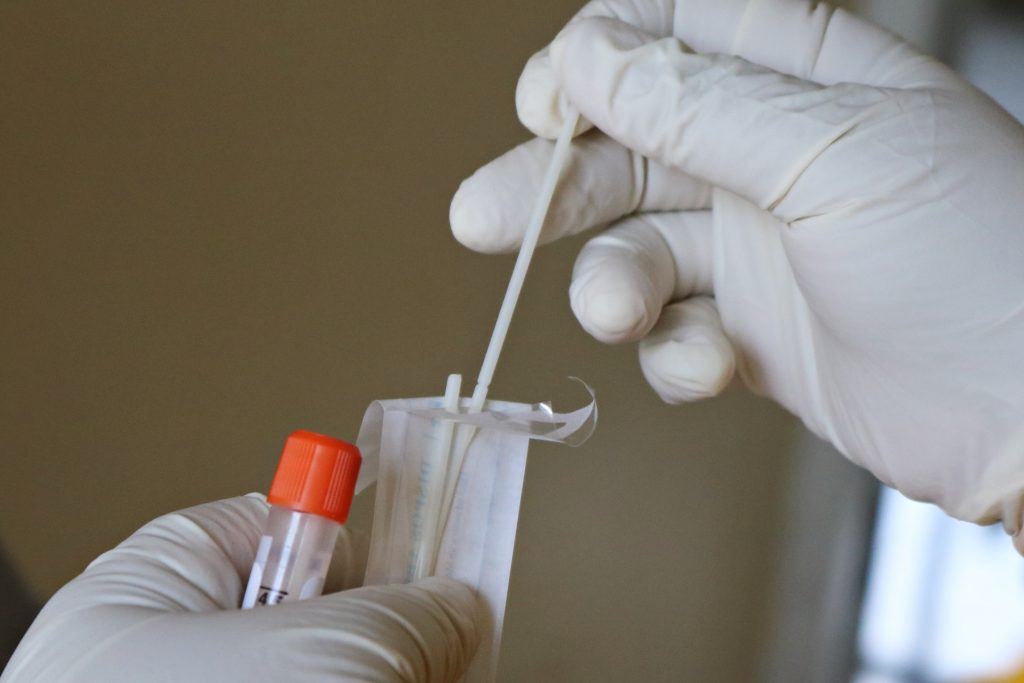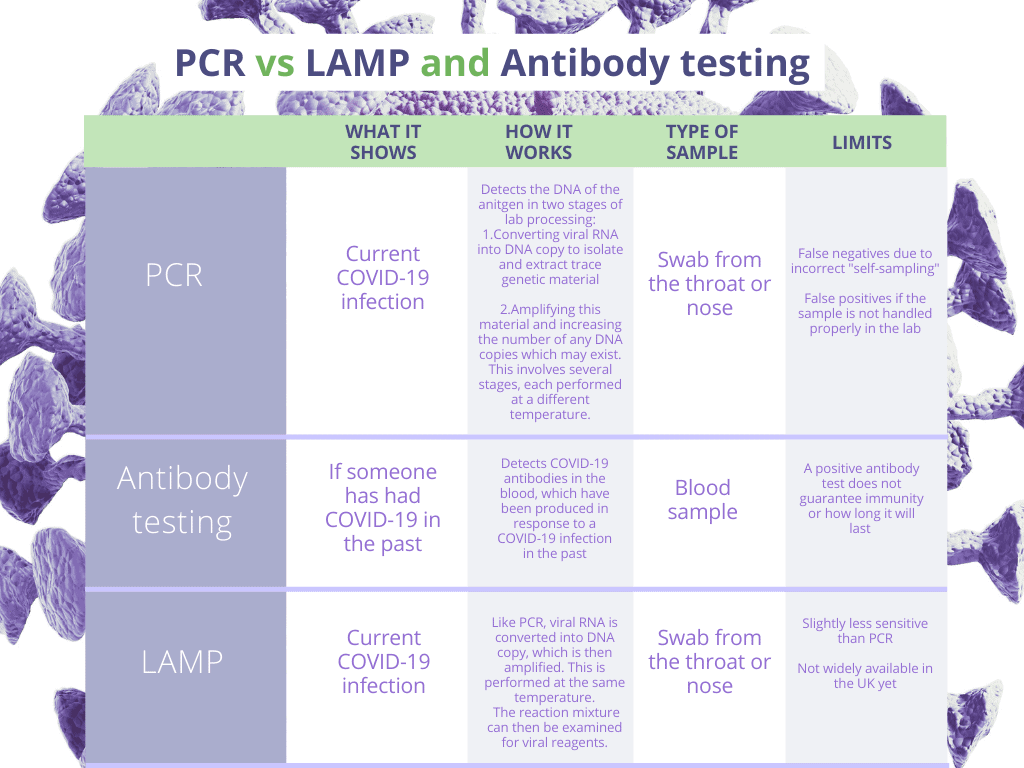COVID-19 tests explained

Need a COVID test for travel or peace of mind? Looking to start a testing programme for your staff, but not sure where to begin? In any instance, understanding how the different tests work is a very good start. Here we explain the basics of PCR antigen testing and antibody testing, as well as a more recent technique, called LAMP.
Antibody, PCR, LAMP – what’s the difference?
A PCR antigen virus test detects if a COVID-19 infection is currently present in the body, informing decisions on who needs to self-isolate.
LAMP (Loop-mediated Isothermal Amplification) tests are another technique explored currently. Unlike PCR, LAMP tests are performed at the same temperature and samples don’t need to be sent to a lab for processing. This means results are more rapid. However, LAMP tests are slightly less sensitive than PCR. As the technology is new, more research is required. In the UK, such tests have been trialled at Heathrow Airport and are not widely available yet.
An antibody test can tell whether someone has previously had COVID-19. However, it does not indicate immunity to the disease or how long it will last – there have been instances of re-infection.
PCR tests give a more current picture of who has COVID-19 at that moment in time. For example, if you are an employer, this kind of testing will help you monitor the wellbeing of staff and prevent outbreaks in the workplace through isolating those who are COVID-19 positive and breaking the chain of transmission.
Antibody testing is currently not recommended by Public Health England and should remain in the domain of public health research until we understand the virus more.

How accurate are PCR virus tests?
They are very accurate (>99.99%) – to the point they can detect the virus even in asymptomatic patients.
What about false results from PCR virus tests then?
This is likely to arise because of incorrect sampling when there hasn’t been enough contact between the swab and the back of the throat. It can be easily prevented by making sure samples are taken by an experienced sample collector, rather than by employees themselves. Incorrect sampling can lead to inconclusive or false negative results.
False positives are another thing to be mindful of. They are usually the result of poor lab handling and errors such as cross-contamination. Choosing an accredited and experienced laboratory to perform the testing will eliminate this scenario.
Why test staff if they display no coronavirus symptoms?
Unfortunately, not showing COVID-19 symptoms does not mean that the person does not have virus or that they are not infectious. Rather, it would mean one of the three:
- The individual is pre-symptomatic: they have the virus, but haven’t developed symptoms yet
- The individual has the virus, but will never develop symptoms
- They don’t have the virus
Identifying people from the first two groups on time can help employers act quickly to prevent a large outbreak in their workplace and minimise disruption to their business.
Next Steps
Setting up a routine COVID-19 testing programme for asymptomatic employees is the only way to stop the virus in its tracks and limit the chances of it spreading in your office, factory or workshop. We can help you achieve that with a tailored made solution for your company, including employee testing and business environment testing. If you fell that is something which can take your business forward safely, call 0191 543 9302 or email support@geneblitz.com
If you are asymptomatic and need a COVID-19 test for personal reasons, please email sales@geneblitz.com or give us a call on 0191 543 9302.